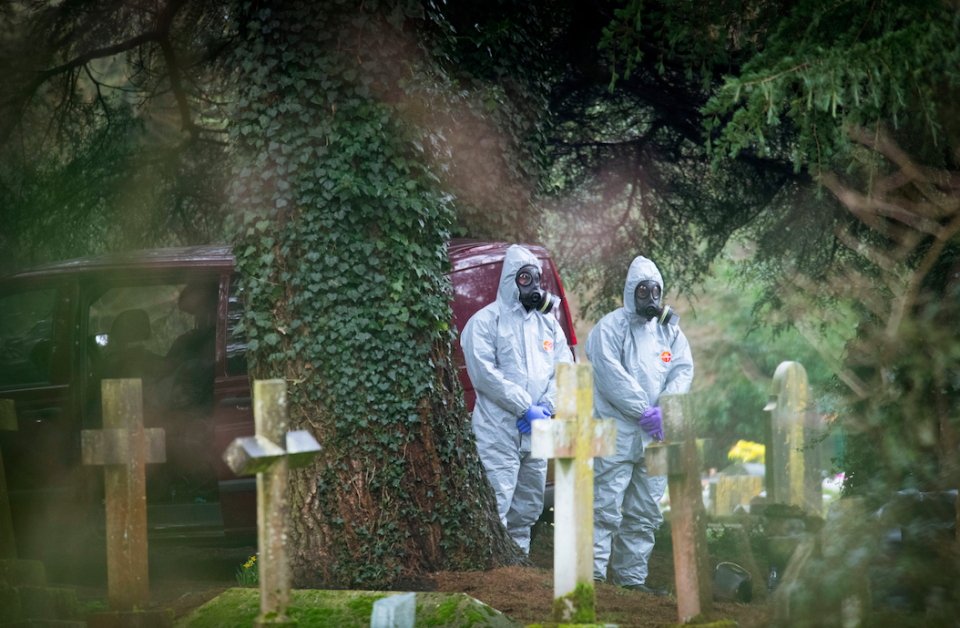Salisbury spy poisoning: Nerve agent used to poison Sergei Skripal and daughter 'delivered in liquid form'

The nerve agent used to poison former spy Sergei Skripal and his daughter Yulia in Salisbury was delivered ‘in a liquid form’, the Government has said.
The Department for Environment, Food and Rural Affairs (Defra) said a ‘very small amount’ of the Novichok nerve agent was used in the attack.
The details emerged at a press briefing in Salisbury, where reporters were told the highest concentration was found at Mr Skripal’s house.


Clean-up work is set to begin at nine sites across the city, as a tenth, an area of the London Road cemetery – which was found not to be contaminated – will reopen to the public today.
Defra said: “We either know there is contamination there (in the nine sites) or we think there is a probability we could find contamination there.’
Salisbury residents have been warned to expect a step-up in activity as investigators wearing protective clothes remove items and chemically clean the areas.
MOST POPULAR TODAY ON YAHOO
Couple furious after Morrisons refuse to sell them meat pies before 9am
US military killed 200 Russia troops in Syria airstrikes, claims Trump ally
Eight legged treats: Restaurant offers TARANTULA as a burger topping
Russia carries out cyber attack targeting ‘critical infrastructure’ across the world
Sergei and Yulia Skripal were discovered unconscious on a bench in Salisbury on 4 March.
Ms Skripal, 33, left hospital earlier this month, while her 66-year-old father is said to be slowly recovering.
The Government has blamed Russia for the poisoning, but Moscow denies having anything to do with the attack.

 Yahoo News
Yahoo News 

